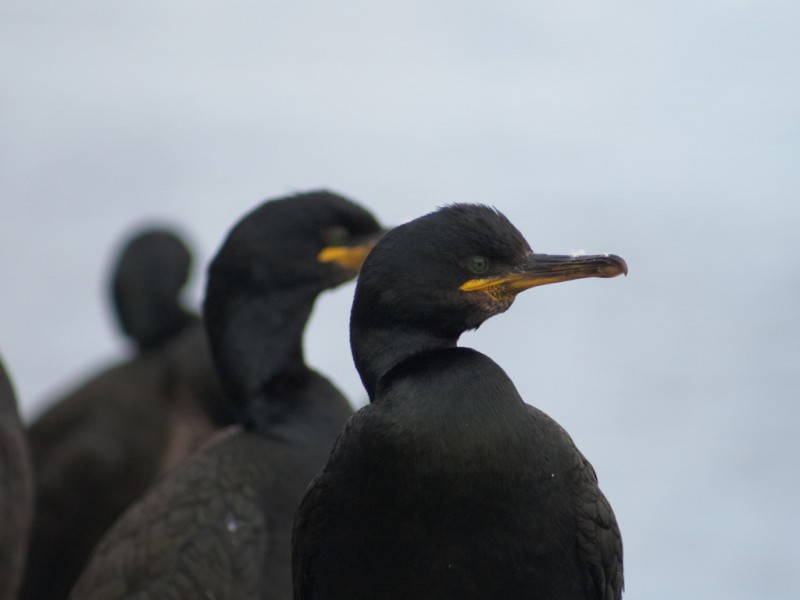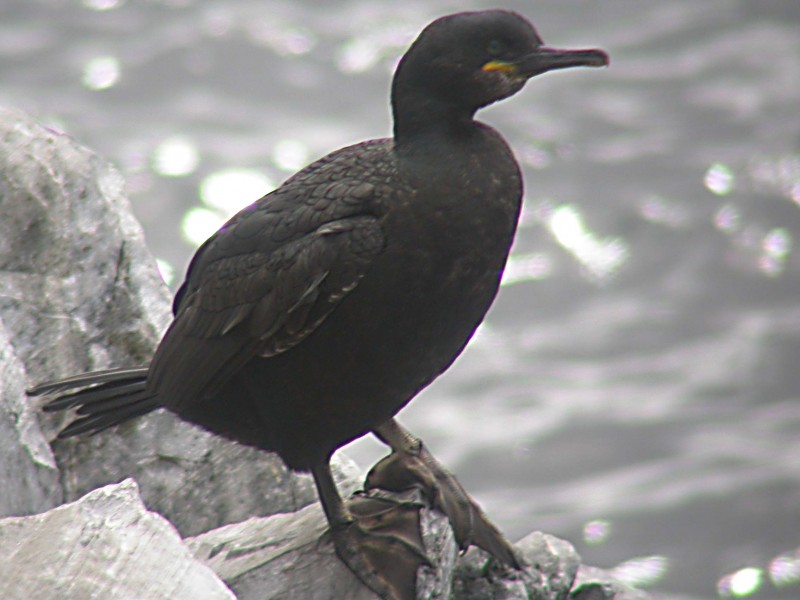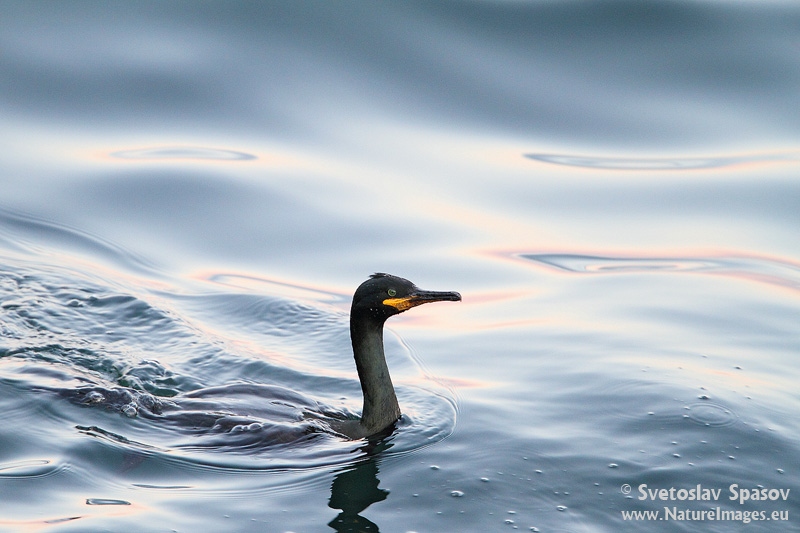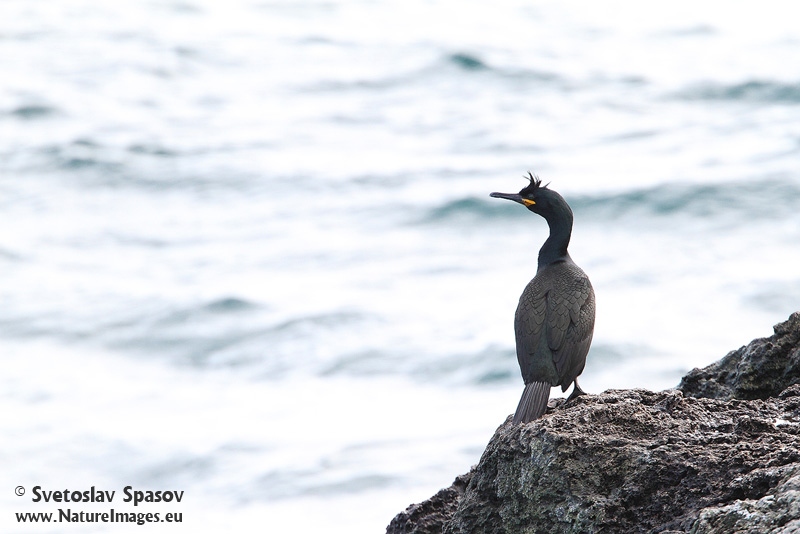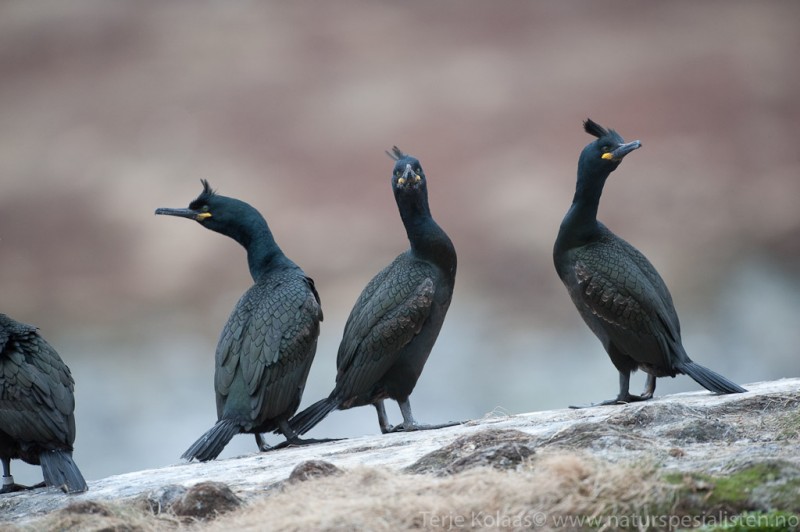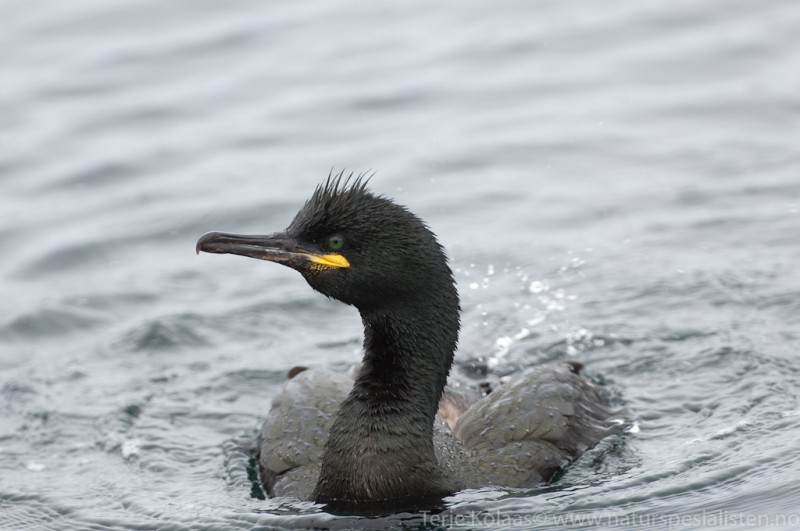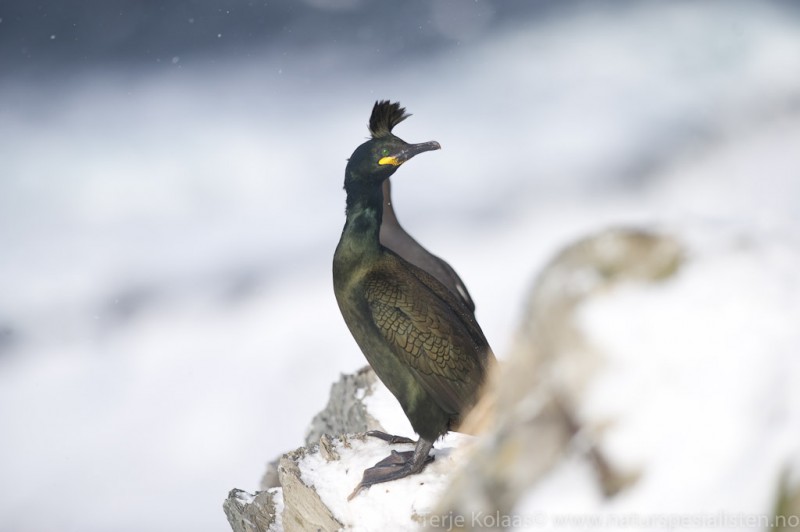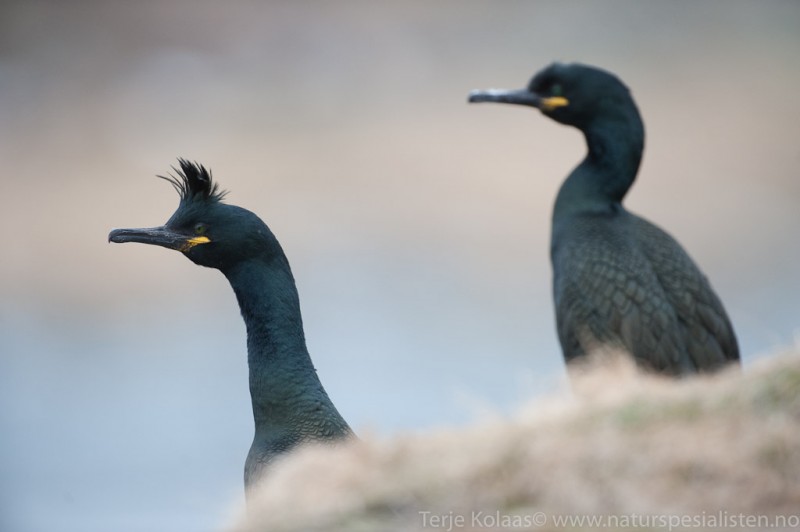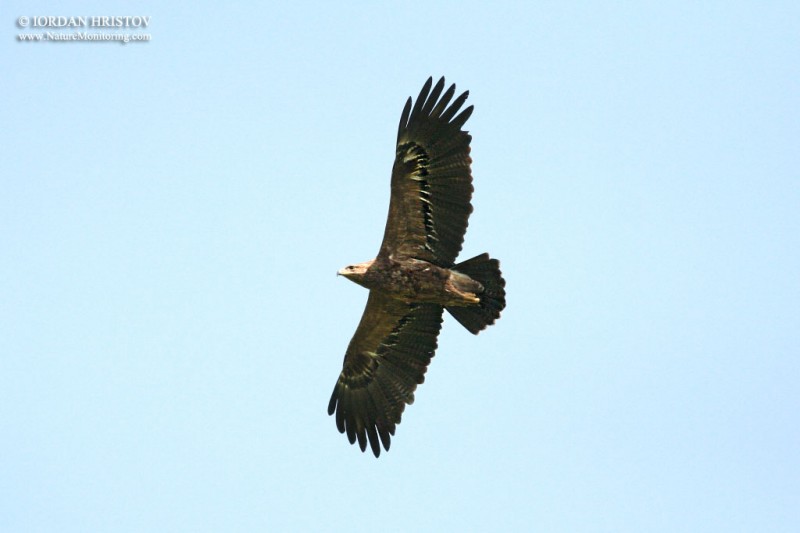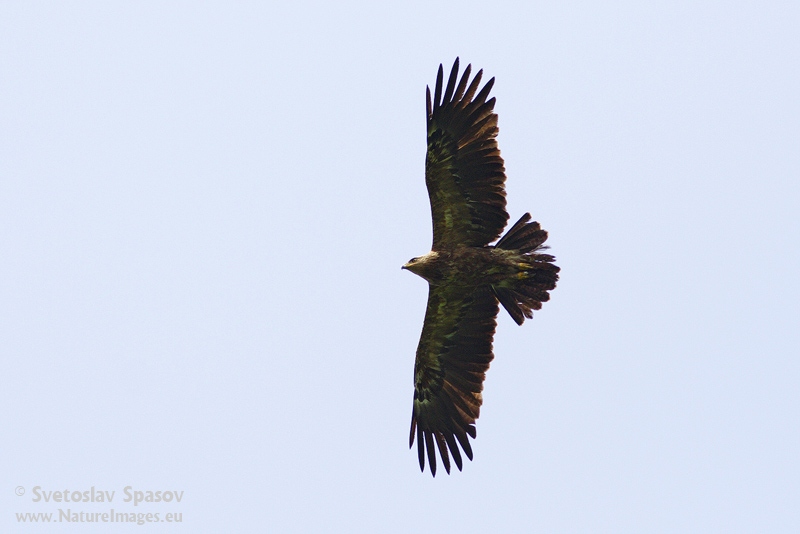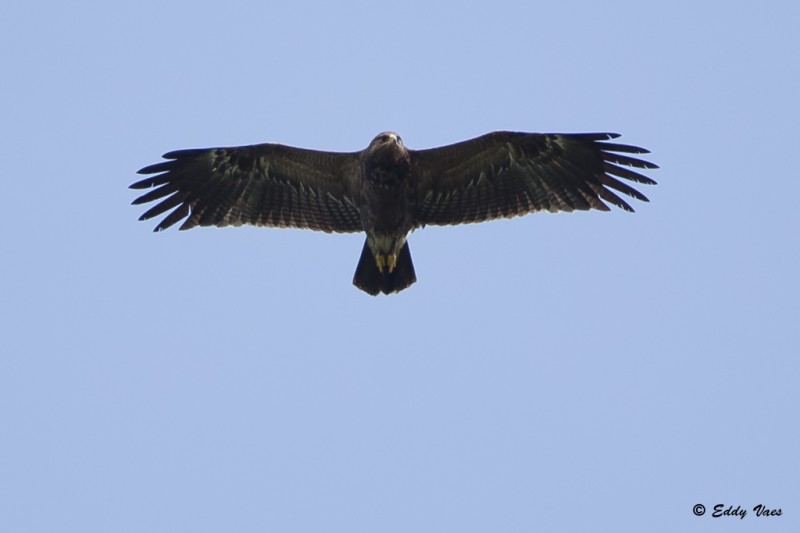Shag (Gulosus aristotelis)
Lesser Spotted Eagle (Clanga pomarina)
Easily distinguished from Cormorant in breeding plumage, but at other times easily confused with congeners. Smaller than Cormorant, with a more slender neck and rounded head. Bill slender and straight. Steep forehead with peaked front crown, differs from the wedge shaped head of Cormorant. Bill often with yellow tinge (never in Cormorant). Flies with quicker wing-beats and straight neck (Cormorant with bulge). Often dives with a high jump. Juveniles with darker underparts than Cormorant, and often an obvious brownish tinge. Rare in brackish water.
Sound:Very deep and harsh voice heard at breeding ground. Deep grunts alternated, or ended with clicking sounds.
Social interaction:
Distribution:
Wikipedia: map (se also Xeno-canto below)
Ecology:Birdlife ecology
Links:
Observation.org Latest observations
Image search Flickr NB! May give other species
CCSounds:www.xeno-canto.org,Jens Kirkeby,http://creativecommons.org/licenses/by-nc-sa/4.0/
Small eagle with evenly broad wings and relatively short tail. Easily confused with Greater Spotted Eagle (C. clanga). Flight-feathers darker than the pale brown coverts, both on upper- and underwing. Head and body distinctly paler than flight feathers. Conspicuous pale patch at base of inner primaries on upperwing (diffuse only in C. clanga). Double "commas" on underwing, formed by pale base of primaries and primary-coverts (one "comma" in C. clanga). Wings more narrow than C. clanga, which makes the tail look slightly longer. U-shaped white patch at base of tail. Immature birds with white tipped greater and median coverts, forming two narrow wing-bands. Wings "fingered", but 7th finger shorter than in C. clanga (but varies with age). Sours and glides with wings held horizontally, but with characteristic drooping hand (similar to C. clanga).
Sound:Vocal at breeding ground, and when courting. Short, barking, high-pitched whistles, not unlike a small dog. Slightly higher pitched than C. clanga and with a purer tone, but very similar.
Call:
Distribution:
Wikipedia: map (se also Xeno-canto below)
Ecology:Birdlife ecology
Links:
Observation.org Latest observations
Image search Flickr NB! May give other species
CC
 English
English Albanian
Albanian
 Armenian
Armenian
 Bulgarian
Bulgarian
 Catalan
Catalan
 Croatian
Croatian
 Czech
Czech
 Danish
Danish
 Dutch
Dutch
 Finnish
Finnish
 French
French
 Georgian
Georgian
 German
German
 Greek
Greek
 Hungarian
Hungarian
 Italian
Italian
 Latvian
Latvian
 Lithuanian
Lithuanian
 Macedonian
Macedonian
 Norwegian
Norwegian
 Polish
Polish
 Portuguese
Portuguese
 Romanian
Romanian
 Russian
Russian
 Sami : Lule sami
Sami : Lule sami
 Sami : North sami
Sami : North sami
 Sami : South sami
Sami : South sami
 Scientific names
Scientific names
 Serbian
Serbian
 Spanish
Spanish
 Swedish
Swedish
 Ukrainian
Ukrainian


